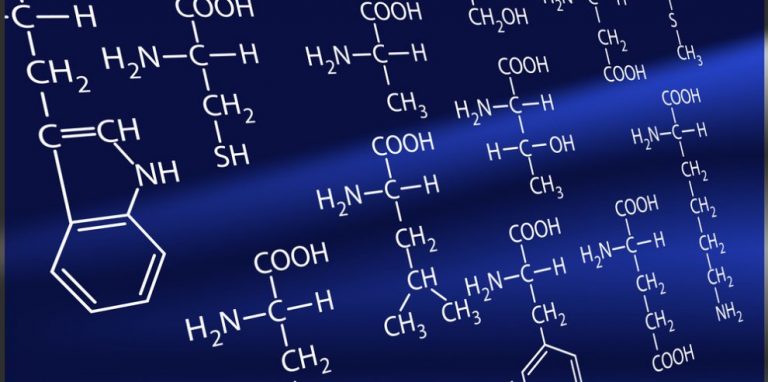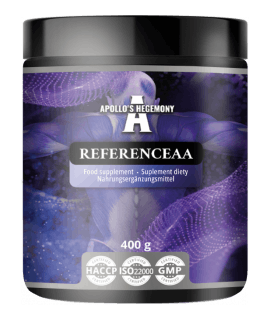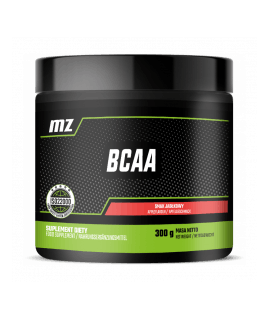Exogenous
Exogenous amino acids are compounds necessary for life. We are not able to produce them ourselves, which is why it is necessary to eat them together with food. There are eight kinds of them:
- Lysine – has immune and antiviral properties
- Methionine – acts immune and regulates the production of growth hormone
- Threonine – acts on the nervous system, on skin hydration and on the fight against depression
- Leucine – accelerates the growth of muscle mass and lowers cortisol levels
- Isoleucine – builds muscle tissue
- Valine – builds muscle tissue, reduces excess body fat
- Tryptophan – takes part in the production of melatonin – healthy sleep and serotonin – good mood and blocking the desire to eat carbohydrates
- Phenylalanine – works on the endocrine system, works on aching muscles
In addition to this group, we can include histidine, which is the only exogenous amino acid in a small amount produced by the body, in the remaining part should be provided with food.
Endogenous
They are amino acids that the body can create itself, but they are not so important and important that they would not live without them.Here, we can distinguish several of them:
- Glycine – works in the treatment of stomach ulcers, arthritis, diabetes, kidney and heart failure, neurobehavioral disorders and leaky intestinal syndrome.
- Alanine – it ensures constant transport of glucose to the erythrocytes and the brain, increases the production of carnosine, which in turn improves muscle function
- Arginine – promotes physical activity, facilitates the transport of nutrients to the muscle tissue, prevents the occurrence of myocardial infarction and hypertension. Arginine delays the aging process, accelerates wound healing, stimulates kidney function and significantly influences the detoxification of the body.
- Aspartic acid – significantly affects concentration as well as mental performance.
- Glutamic acid – significantly affects memory, stimulates the central nervous system, helps in the disease of gastric and duodenal ulcers, helps in the secretion of digestive enzymes of the pancreas, improves digestion, has antidepressant properties, and minimizes fatigue.
- Proline – affects the appearance of the skin, its stretch and elasticity. It significantly influences the drying speed. Takes part in the collagen production process.
- Hydroxyproline – affects the structure of collagen, as well as the proper functioning of connective tissue.
- Serine – affects the regulation of neuron work, affects many mental diseases, including addictions and schizophrenia. It supports the immune system, helps in the digestion of proteins, and is involved in the synthesis of, inter alia, leucine, sphingosine and acetylcholine.
- Semiessential
These amino acids arise in the body from exogenous amino acids. We can distinguish two types,
The action of amino acids on our body
Each amino acid is responsible for specific functions related to the proper functioning of the whole organism. Some are more important, others less. Some are necessary for us to live, others are not. We must provide some in the form of food, we produce the other ourselves. Below we will look more closely at the most important amino acids, showing how important they play in our body. And yes:
- Tryptophan – this amino acid belongs to the group of exogenous compounds that are part of proteins. It is one of the components of serotonin – the hormone of happiness. In the body, it undergoes changes, including melatonin, which is responsible for proper sleep. It affects the regulation of metabolism, is the basis in the synthesis of pyridoxine and niacin. If the body is deprived of tryptophan, sleep disorders, lower immunity, anxiety and even depression appear. What should you eat to get this amino acid to your body? Certainly bananas and dairy products.
- Methionine – belongs to the exogenous amino acids. It is necessary for the synthesis of choline and lecithin to occur. It affects the prevention of atherosclerosis and metabolic diseases, prevents nail brittleness, hair loss and poor skin condition. Deficiency can lead to depression. What should you eat? Rice, millet, wheat bran, mushrooms, walnuts, meat, fish, as well as legumes.
- Phenylalanine – belongs to the exogenous amino acids constituting the building blocks of systemic proteins. It significantly affects the development of the nervous system, it is involved in the production of thyroid hormones and the adrenal medulla. Prevents the occurrence of headaches and depression.
- Lysine – is an exogenous amino acid involved in the synthesis of body proteins. It strengthens immunity, is a component of bones, skin, cartilage as well as tendons. What should you eat? Certainly fish, poultry, eggs, pods and yellow cheeses.
- Isoleucine, leucine, valine – These amino acids together occur as BCAAs. They are exogenous amino acids that occur in both vegetable and animal proteins. They are a perfect supplement for athletes, because on the one hand they increase muscle strength, on the other they support regenerative processes.
When to take amino acids?
There is no one specific dose to take amino acids, because everything depends on how many kilos a person has and how often he trains. It is estimated that the amount of exogenous amino acids, including BCAA is 10-15 g, in body builders up to 30 g. Other calculations determine 1g for every 10 kilograms of body weight. Depending on what type of training we do, it should be taken in a given period. In endurance sports and training in the morning, amino acids should be taken before training to gain strength. With long-term activity, it is recommended to take amino acids during training, in order to be able to support muscles by adding them energy and protecting against catabolism. Amino acids after regeneration regenerate while developing muscle tissue,
In what form should you take amino acids?
Amino acids in various forms are available on the market depending on the preferences of a particular person. The most popular are amino acids in the form of a powder that dissolves in water.It is the best absorbed and the cheapest. However, there are capsules and tablets that are easy to use though expensive, and also in the form of a liquid that is extremely easy to use and extremely easy to absorb. Of course, it is good to bet on well-known and well-known brands, because by saving we can bet on low-end amino acids that will not be able to give us what our valued products are.
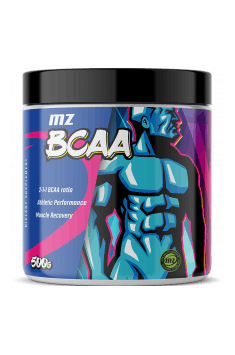
Research on amino acids
Of course, many studies have been carried out to show the effect of amino acids on the human body.So what is the result of them? We certainly know that:
- BCAA reduces muscle pain, accelerates regeneration, affects muscle anabolism, increases endurance during training and reduces fatigue. In addition, BCAA has an anti-catabolic effect and has a positive effect on hormones.Conclusions from the research showed that BCAA significantly influenced the reduction of muscle pain, as well as accelerated post-workout regeneration. Supplementation BCAA according to Tokyo researchers reduced muscle damage, and supported muscle anabolism influenced the construction of new proteins. Further evidence shows that taking 25 grams of BCAA per day contributes to reducing fatigue while increasing endurance in training. And finally, it was also proven by research that BCAAs significantly influence the formation of our hormones. Reducing cortisol, increasing testosterone are the main effects of taking BCAA. In addition, leucine has an anabolic effect. It is the most important amino acid when it comes to BCAA. It significantly influences the stimulation of muscle protein synthesis. So if building muscle mass is just with the help of leucine.
- Glycine increases the level of adiponectin, which can help in weight loss.
http://www.ncbi.nlm.nih.gov/pubmed/18852529 - Leucine works strongly anti-catabolic (reduces the degradation of muscle proteins).
https://www.ncbi.nlm.nih.gov/pubmed/1443126
BCAA or EAA?
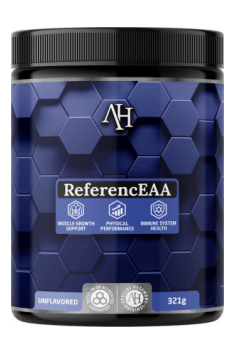
In the world of sports, the best known associations are BCAA and EAA, which many sportsmen use. But let’s think about the question, what will turn out to be a better choice? Of course, how many specialists, so much in this area we can find opinions. One thing is certain – amino acids are to improve our training results. We usually buy BCAA. It is determined that they regenerate muscles, support the growth of muscle mass, and add energy while eliminating fatigue.are this is in reality? The truth is that BCAA should be taken before or during training.Why? In 35% of cases, our muscles consist of BCAA amino acids. When we train, they are destroyed, because we have to get some energy from somewhere.The whole process is possible thanks to enzymes called calpains, which are produced by muscular mitochondria. When we train in muscles, the amount of glycogen drops, while BCAA is released from muscle proteins.We are therefore provided with muscle energy and amino groups that are further combined with pyruvic acid, thus leading to the production of -alanine. What’s next? Alanine goes to the liver with blood and is converted into glucose. Glucose goes back to the muscles and gives them more energy. When we provide BCAA supplements in the form of supplements before and during the training, we will save protein and at the same time inhibit catabolism of proteins and we will double effect on the glucose-alanine cycle. Thanks to taking BCAA in this way, the training takes longer and is more intense. And what about the influence of BCAA on fatigue? High levels of these amino acids delay the fatigue effect, although not everyone works.In such cases, if the person is lethargic and tired, BCAA should be combined with tyrosine.
And how is BCAA to EAA?
For sure, BCAA is a better solution before and during the training, while EAA is the ideal solution after the training.After training, leucine affects the synthesis of muscle proteins.To get anabolism it is necessary to provide and other amino acids.If they are not there, you can not build muscle and become anabolism, the way we wrote it is possible with the appropriate portion of all amino acids.,
The thesis of EAA superiority over BCAA after training (mTOR stimulation).Research → https://www.physiology.org/doi/pdf/10.1152/ajpcell.00374.2015
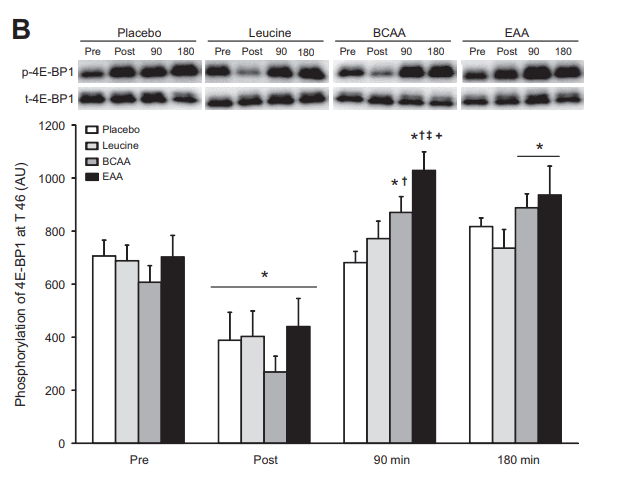
And BCAA and EAA are very important.These are amino acids that play extremely important functions.In athletes, they are important in a special way.BCAA before and during training regenerate muscles, reduce fatigue, allow you to train longer and harder.EAA, in turn, after training, increase muscle mass and rebuild surplus damaged structures.But of course, apart from the amino acids themselves, a healthy diet, adequate amount of water and, of course, appropriate training are essential,
As we see, amino acids are extremely important for our body.Essential for everyone, especially for people who train and want to gain muscle mass.Depending on the type of amino acids, they have specific functions in the body that have a significant impact on the entire human body.
